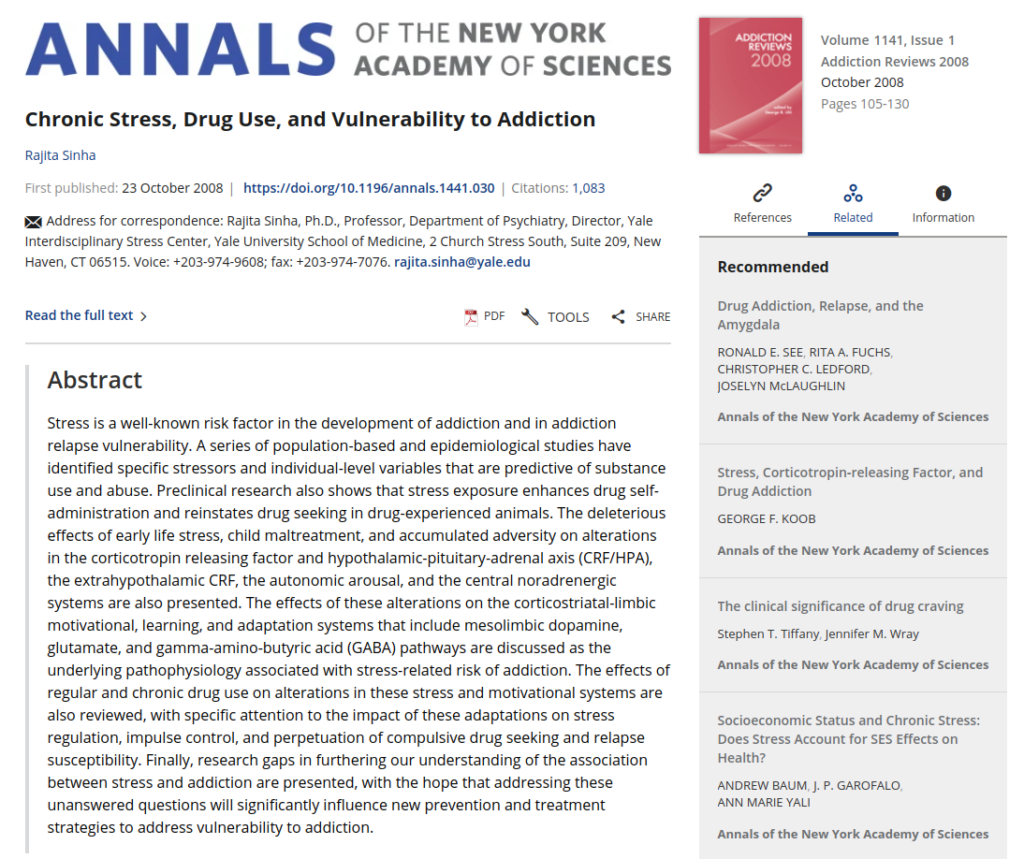Stress is a well-known risk factor in the development of addiction and in addiction relapse vulnerability. A series of population-based and epidemiological studies have identified specific stressors and individual-level variables that are predictive of substance use and abuse. Preclinical research also shows that stress exposure enhances drug self-administration and reinstates drug seeking in drug-experienced animals. The deleterious effects of early life stress, child maltreatment, and accumulated adversity on alterations in the corticotropin releasing factor and hypothalamic-pituitary-adrenal axis (CRF/HPA), the extrahypothalamic CRF, the autonomic arousal, and the central noradrenergic systems are also presented. The effects of these alterations on the corticostriatal-limbic motivational, learning, and adaptation systems that include mesolimbic dopamine, glutamate, and gamma-amino-butyric acid (GABA) pathways are discussed as the underlying pathophysiology associated with stress-related risk of addiction. The effects of regular and chronic drug use on alterations in these stress and motivational systems are also reviewed, with specific attention to the impact of these adaptations on stress regulation, impulse control, and perpetuation of compulsive drug seeking and relapse susceptibility. Finally, research gaps in furthering our understanding of the association between stress and addiction are presented, with the hope that addressing these unanswered questions will significantly influence new prevention and treatment strategies to address vulnerability to addiction.
Chronic Stress, Drug Use, and Vulnerability to Addiction
Abstract
Web and Email Links
Related Listings
Journal
Journal of Integrative and Complementary Medicine
Several hundred peer-reviewed studies in the past 20 years have shown that the relaxation response and mind–body interventions are clinically effective in the treatment of many health problems that are caused or made worse by stress. Recent studies show that mind–body interventions may improve prognosis in coronary heart disease and can enhance immune functioning. It is hypothesized that mind–body interventions reduce sympathetic nervous system activation and increase parasympathetic […]
Journal
Journal of Human Stress / Behavioral Medicine
A previous investigation has demonstrated that the practice of a meditational technique elicits a wakeful, hypometabolic state. Measurement of O2 consumption and CO2 elimination was made by sampling techniques; mean values of these parameters were calculated from 6–10 minute samples. The present study extends this investigation, using a recently developed method of continuous measurement of O2 consumption and CO2 elimination. Continuous measurement of these parameters permitted the de […]
Journal
Journal of Chronic Diseases
A prospective investigation was designed to test whether the altered behavior of the regular practice of a relaxation, meditational technique might lower blood pressure in 22 borderline hypertensive subjects. The investigation was unbiased with regard to the presence of antihypertensive agents; subject familiarity with blood pressure measurement or with the observer; observer error; and the effects of blood pressure variability. During the control period, blood pressures averaged 146. […]

